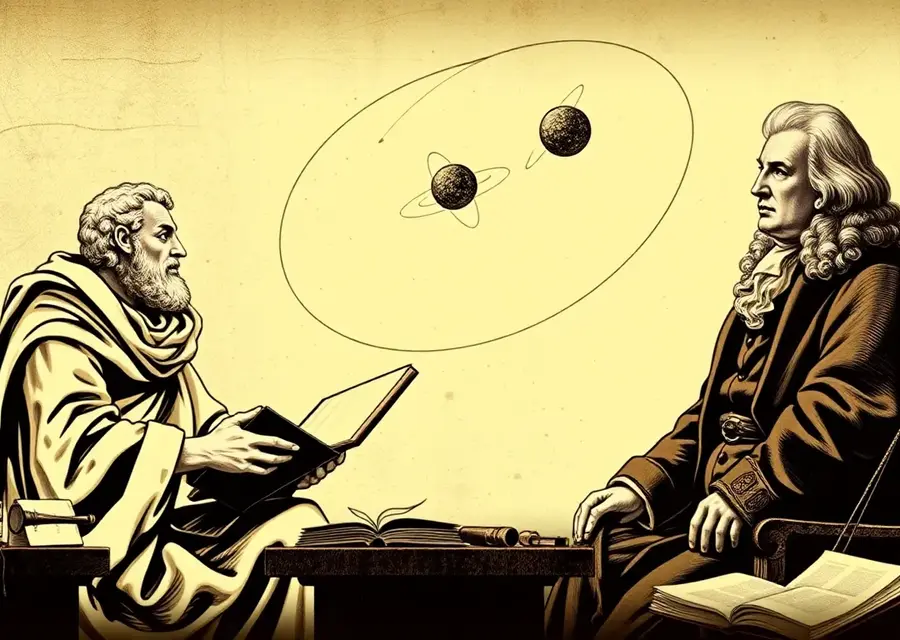Natural Philosophy Through History: From Aristotle to Modern Science
- THE MAG POST

- Sep 8, 2025
- 4 min read

Natural philosophy emerged as the broad inquiry into nature that predated laboratories and standardized science. It wove metaphysics, careful observation, and geometric reasoning to explain how the world works. Practitioners asked why things move, why substances take form, and how order arises from natural causes.
as the framework evolved, natural philosophy split into disciplines, refinement of methods, and the rise of empirical science. The vocabulary changed: hypotheses, experiments, and quantitative measurement replaced purely speculative accounts. Yet the lineage remained visible in modern physics, chemistry, and astronomy, where curiosity about nature persists as a guiding motive.
Origins and Evolution of the Philosophy of Nature
Centuries of inquiry into the nature of things formed a bridge between speculative thought and the later discipline of science.
Ancient roots and the Greek physikoi
In the early debates, thinkers such as Thales, Anaximander, and Anaximenes sought a unifying principle behind natural phenomena, often naming an underlying element like air or water. Aristotle later integrated observation with systematic categorization, arguing that form and matter together define an object's essence.
The physikoi were described by Aristotle as natural philosophers who examined how things come to be and change, laying groundwork for a scientific vocabulary that would later refine into physics, biology, and chemistry. This lineage emphasizes reasoning about nature's order and regularities rather than myth or mere anecdote.
From speculative to empirical thinking
During the medieval to early modern transitions, scholars wrestled with causality, motion, and method, gradually separating explanatory frameworks from purely theological explanations. The shift toward quantitative reasoning began with Galileo and contemporaries who demonstrated that phenomena could be measured, predicted, and tested, not just described.
That turn toward calculation and experimentation marked a key step in reorganizing natural inquiry, while retaining a philosophy of nature that recognized its complexity. The language of science emerged from this synthesis, with mathematics providing a reliable toolkit for deciphering patterns in the physical world.
Key figures and shifts
Isaac Newton framed universal laws in a mathematical form, a milestone in moving from philosophical ruminations to predictive science. In Germany, Naturphilosophie sought a unity of nature and spirit, influencing Romantic thinkers who viewed science as part of a larger cultural and metaphysical project. These currents bridged imagination and inference.
Across centuries, the tension between mechanistic explanations and holistic, teleological visions persisted. The resulting dialogue helped shape modern physics and chemistry, affirming that rigorous methods and conceptual openness can coexist. The philosophy of nature thus remains a guiding frame for cross-disciplinary inquiry.
The German Naturphilosophie and the unity of nature and spirit
From the Enlightenment onward, debates about nature's unity challenged compartmentalized science, prompting reflections on whether nature itself is a coherent whole. Romantic and Kantian ideas encouraged synthetic thinking that sought connections beyond isolated experiments, influencing how scientists framed questions about life, matter, and the cosmos.
Romanticism and the living cosmos
Romantic naturphilosophie envisioned nature as a living, interconnected organism rather than a machine. Goethe, Schelling, and Hegel explored how spiritual and natural orders might converge, arguing that scientific inquiry should be nourished by imagination and a sense of unity. This stance energized speculative approaches to biology and geology.
Critics, however, cautioned that such lines of thought could stray from testable hypotheses. Nonetheless, the impulse to see nature as an integrated totality persisted, influencing later theories about systems biology, ecological thinking, and the study of natural processes in context rather than as isolated mechanisms.
The empirical turn
As empirical methods gained traction, the emphasis shifted toward controlled observation, measurement, and reproducibility. The late 18th and 19th centuries saw a narrowing of focus, with science increasingly organized into specialized disciplines, yet the philosophical questions about nature's essence and causes remained central in debates and education.
Even as labs industrialized, the memory of Naturphilosophie lingered in discussions about the aims of science, the role of theory, and the relationship between observer and phenomenon. The era catalyzed a more reflective science that valued both rigorous data and conceptual clarity.
From four causes to the scientific method: a shift in thinking
Ancient explanations of nature often invoked fourfold causation or teleological aims, but the modern method privileges mechanisms and empirical validation. This transition redefined how scientists justify claims, moving from pre-scientific reasoning toward repeatable experiments and predictive models.
Aristotle’s four causes and natural explanation
Aristotle offered matter, form, mover, and purpose as organizing principles for natural inquiry. This framework allowed a comprehensive account of why things exist and how they change, without surrendering to mere description. The interplay of these causes provided a robust language for early natural philosophers.
Yet the fourfold scheme also faced critique: over time, emphasis shifted toward efficient and causal explanations that could be tested. The remaining causes helped illuminate teleological questions but were gradually subordinated to experimental inquiry and mathematical modeling as science matured.
Bacon, Boyle, and the rise of experimentation
Francis Bacon championed empirical investigation as the engine of knowledge, urging scientists to vex nature to reveal her secrets. Robert Boyle advanced the idea that observations and experiments could unlock the mechanisms underlying matter, laying foundations for modern chemistry and the experimental sciences.
As these voices shaped practice, the boundary between philosophy and science blurred. The resulting ethos valued replication, careful reporting, and openness to falsification, accelerating the institutionalization of science and the disciplined pursuit of truth through observation rather than inherited authority.
Key Takeaways
From its broad beginnings, natural philosophy guided how humans ask about the world, gradually narrowing toward empirical science. Its legacy lies in balancing thoughtful explanation with testable methods, shaping disciplines from physics to chemistry and beyond. The history reminds us that theory and experiment are partners in understanding nature.
Aspect | Overview |
Origins | Ancient Greeks framed nature through rational inquiry, laying groundwork for later science |
Terminology | Transition from natural philosophy to natural science as empirical methods gained prominence |
Key figures | Aristotle, Newton, Bacon, Boyle; debates between holism and mechanism |
Method | Evolution from qualitative description to measurement, experimentation, and math |
Legacy | Continues to influence philosophy of nature and interdisciplinary science |






















































Comments